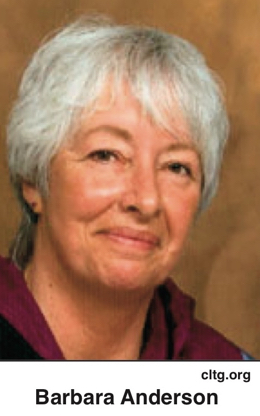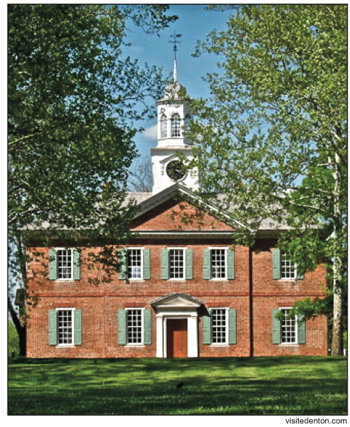Rascals case in brief
In the beginning, in 1989, more than 90 children at the Little Rascals Day Care Center in Edenton, North Carolina, accused a total of 20 adults with 429 instances of sexual abuse over a three-year period. It may have all begun with one parent’s complaint about punishment given her child.
Among the alleged perpetrators: the sheriff and mayor. But prosecutors would charge only Robin Byrum, Darlene Harris, Elizabeth “Betsy” Kelly, Robert “Bob” Kelly, Willard Scott Privott, Shelley Stone and Dawn Wilson – the Edenton 7.
Along with sodomy and beatings, allegations included a baby killed with a handgun, a child being hung upside down from a tree and being set on fire and countless other fantastic incidents involving spaceships, hot air balloons, pirate ships and trained sharks.
By the time prosecutors dropped the last charges in 1997, Little Rascals had become North Carolina’s longest and most costly criminal trial. Prosecutors kept defendants jailed in hopes at least one would turn against their supposed co-conspirators. Remarkably, none did. Another shameful record: Five defendants had to wait longer to face their accusers in court than anyone else in North Carolina history.
Between 1991 and 1997, Ofra Bikel produced three extraordinary episodes on the Little Rascals case for the PBS series “Frontline.” Although “Innocence Lost” did not deter prosecutors, it exposed their tactics and fostered nationwide skepticism and dismay.
With each passing year, the absurdity of the Little Rascals charges has become more obvious. But no admission of error has ever come from prosecutors, police, interviewers or parents. This site is devoted to the issues raised by this case.
On Facebook
Click for earlier Facebook posts archived on this site
Click to go to
Today’s random selection from the Little Rascals Day Care archives….
Click for earlier Facebook posts archived on this site
Click to go to
Today’s random selection from the Little Rascals Day Care archives….
Will Mass. governor show McCrory (or Cooper) the way?
 Oct. 22, 2015
Oct. 22, 2015
North Carolina isn’t the only state that has failed to mitigate – however little and late – the injustices it inflicted during the “satanic ritual abuse” era.
In Massachusetts, the Fells Acres Day Care case of 1984 resulted in the conviction and imprisonment of Violet, Gerald and Cheryl Amirault. Even more than in other such cases, the prosecution was gratuitously and unceasingly hateful. In 2002, at the urging of District Attorney Martha Coakley, Acting Gov. Jane Swift refused to sign the parole board’s unanimous recommendation of commutation. (At least voters managed not to rewardCoakley, with either a Senate seat or the governorship.)
In 2004, Gerald became the last of the three Amiraults to be released, but his parole carried numerous restrictions.
Barbara Anderson, a longtime advocate, provides this update:
“Gerald’s parole conditions became more burdensome over the years as real sex crimes were committed in the commonwealth: polygraph exams; exclusionary zones (towns he isn’t allowed to enter); a ban on leaving the state without a permit that must be voted on each time by the parole board (and then for no more than two weeks). For years his monthly GPS surveillance fee was $380; this has been dropped to $80 for parole supervision.
“The harshest provision seems to be the ankle bracelet, which keeps him from wearing shorts in the summer or ski boots in the winter, from swimming at the beach with his grandchildren. He has to keep a log of everywhere he goes outside his house.”
During last year’s gubernatorial campaign, Republican candidate Charlie Baker told Anderson that if elected he would address Amirault’s plight. Baker narrowly defeated Coakley, but so far he hasn’t followed through.
Anderson again calls on Baker “to remove the bracelet from Gerald’s ankle, to drop his curfew, to allow him to get a job and to start helping his wife earn money to pay the mortgage acquired during his defense.
“Just call the Sex Offender Board and ask to have him re-classified from Level 3 to Level 1 to ease his restrictions. Or ask them to vote to take him off parole…. Otherwise he’ll be suffering unfair indignities until 2024.
“Clearly there is no way for Massachusetts to make up for 30 years of injustice. ‘Pardon’ is the wrong word, since the Amiraults did nothing wrong, but it may be the only remedy since governments don’t usually do ‘apology.’ “
If Gov. Baker should belatedly rouse himself to unshackle Gerald Amirault, might his fellow Republican governor in North Carolina – or that governor’s would-be successor – take notice? The Edenton Seven may not suffer the continued punishment still visited on Amirault, but their lives too were forever and indelibly damaged by the state.
Edenton’s history was no defense against panic
 Jan. 28, 2013
Jan. 28, 2013
Manhattan Beach, California; Malden, Massachusetts; Christchurch, New Zealand; Maplewood, New Jersey; Sao Paulo, Brazil…. For more than a decade, unfounded allegations of day-care ritual abuse were breaking out all over the planet.
But for sheer cultural anomaly it’s hard to match the emergence of such a case in historic and pristine Edenton, North Carolina, not unreasonably billed as “the South’s Prettiest Small Town.”
Edenton had made lots of headlines before Little Rascals, but almost none since the 1700s.
Among the town’s prominent residents: Joseph Hewes, signer of the Declaration of Independence; Hugh Williamson, signer of the Constitution; James Iredell, George Washington’s youngest appointee to the U.S. Supreme Court.
Penelope Barker hosted the Edenton Tea Party to protest British taxes (that’s her waterfront house in the opening scene of “Innocence Lost”).
Harriet Jacobs, author of “Incidents in the Life of a Slave Girl,” was a native.
You won’t find a Walmart in Edenton (population 5,000 and slowly shrinking), but its trove of civic treasures includes a 1925 moviehouse, a 1939 baseball park and a 1767 courthouse (above right), the state’s oldest.
So why Edenton of all places? How did this charming, 300-year-old hamlet happen to offer all the essential ingredients for a world-class ritual-abuse panic? I wish I knew (and I wish Edenton did too).
Prosecutors couldn’t buy off ‘depraved’ defendants
Nov. 16, 2011
“The Little Rascals defendants never wavered in their contention that the allegations were untrue. Not one testified against the other, even though prosecutors commonly offer leniency to accused people in exchange for damning testimony.
“If the defendants were so depraved that they in fact sexually abused small children wholesale, how is it that none was tempted to ‘tell all’ to save his or her hide?”
– From an editorial in the Norfolk Virginian-Pilot (June 2, 1997)
In Raleigh, even justice delayed is hard to come by
Dec. 3, 2012
Exoneration is in the air!
From Texas to New York – and of course here in North Carolina – more and more prosecutorial abuses are being dug up, dusted off and exposed to long-delayed doses of daylight.
If you’re keeping score, the National Registry of Exoneration has just hit quadruple digits – that’s Bob Kelly, Dawn Wilson and 998 other wrongfully convicted defendants.
So what are the prospects that the State of North Carolina will at last release a Duke-lacrosse-style statement of innocence for the Edenton Seven?
Since last summer, when my petition was kissed off by Mark Davis, general counsel to Gov. Bev Perdue, and I was advised to try Attorney General Roy Cooper, not a peep has been heard in response. It would take a greater optimist than me to believe this silence suggests ongoing thoughtful contemplation.
As the governor prepares to leave office, a valued ally of littlerascalsdaycarecase.org used his access to lobby on behalf of the defendants. But pardon applications have been torrential, he was told, and the Edenton Seven case isn’t among those Perdue is considering.
That still leaves the attorney general – or does it, Mr. Cooper?











0 CommentsComment on Facebook